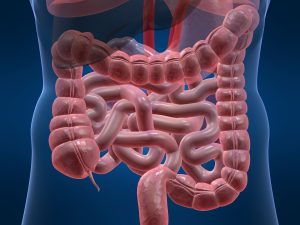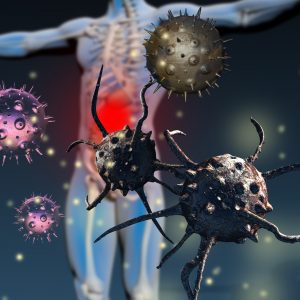
Leaky Gut, Chronic Disease, & Long Term Health
Leaky Gut This blog discusses the very important health issue of leaky gut. You will learn: What is the gut & the gut microbiome What
If you are a doctor or clinician looking to make a bigger impact on the world, have more job satisfaction and have up-to-date protocols and treatment solutions for your patients, check out our free functional medicine training led by functional medicine expert, Dr. Miles Nichols below.
Plus additional BONUS training videos on treating tough cases of brain fog and cognitive impairment!!
Research on Alzheimer’s disease is continuously looking for what causes the disease and how to better treat Alzheimer’s. A relatively new finding suggests that Alzheimer’s is related to diet and fructose. Research now indicates that Alzheimer’s is a modern disease brought on by the Western diet. Due to the changes in our diet, people typically consume too much fructose. It has now come to light that fructose disrupts how the brain functions, leading to the cognitive issues that cause Alzheimer’s.
In this bog, you will learn:
Do you know what cognitive impairment is and how it can affect your clients? If you want to know more about this rapidly growing health concern and how to best optimize the health of your clients, then this blog is for you. Please read on for answers!
Do you get stuck clinically with chronic symptoms in your patients? Would you like to have a larger impact on improving your clients’ issues?
The key to optimal health is an individual approach using nutrition, lifestyle and exercise. To improve your patients’ quality of life, you need to identify and address the root causes. Our functional medicine course will teach you how to do this. Look into our functional medicine school (mindbodyfunctionalmedicine.com) to have a greater impact on improving your client’s lives.
** Please note: If you want the short summary version of this article, then please click here.
What is Alzheimer’s (AD)?
Alzheimer’s disease is a progressive disease that starts with mild memory loss and eventually leads to more severe cognitive issues. Over time, an Alzheimer’s sufferer slowly loses memory and thinking skills. Eventually, with severe Alzheimer’s, a person can no longer hold a conversation or conduct a normal and independent daily life.
There is currently no guaranteed cure for Alzheimer’s. We have written a blog here about how Functional Medicine can help prevent, address and potentially improve a case of Alzheimer’s. This is achieved through finding root causes and addressing diet and lifestyle issues.
What Causes Alzheimer’s?
The precise cause, or causes, is not entirely clear at this point. For many years, researchers have thought that the cause of Alzheimer’s is the amyloid plaque that forms in the brain. But we now know that this is not the cause, but rather a consequence, of Alzheimer’s. In fact, new research shows that diet, and specifically, fructose, is a critical factor in Alzheimer’s (Johnson RJ T. D., 2023).
What is happening in Alzheimer’s?
A healthy brain has billions of neurons. A neuron is a nerve cell. Neurons transmit messages and information via electrical and chemical signals between different parts of the brain and to other parts (muscles, organs) of the body. Alzheimer’s disease disrupts this communication between the neurons, causing cognitive dysfunction.
As neurons in the brain stop working and die, and communication between neurons breaks down, regions of the brain shrink. Brain atrophy becomes widespread as brain volume declines.
Many changes happen on a cellular level in the brain with Alzheimer’s disease:
Beta amyloid plaque starts to form in the brain, in Alzheimer’s. Excessive amounts of amyloid proteins collect and form plaques in the brain. This disrupts neuron and cell function. This was once thought to be the cause of Alzheimer’s. But research has now determined that the build-up of amyloid plaque is a consequence, and not a cause, of Alzheimer’s.
Tau protein build-up is another abnormal chemical change in the Alzheimer’s brain. Tau is a protein. With Alzheimer’s disease, it starts to stick to other tau protein molecules. This creates abnormal tangles inside neurons which block the communication that happens between neurons.
This abnormal build-up of proteins in the brain slowly damages memory and cognition (Johnson RJ T. D., 2023)
Chronic neuroinflammation and neuron damage happens in Alzheimer’s. Microglia are cells in the brain that normally destroy waste and toxins. In Alzheimer’s, microglia don’t clear away the toxins, but instead allow beta amyloid plaques to form, causing inflammation in the brain.
Treatments focused on decreasing beta amyloid and/or tau protein accumulations have not been as successful as predicted or hoped for (Johnson RJ T. D., 2023). This is because the protein build-up is not the cause of Alzheimer’s. Other mechanisms are driving the development of AD and these need to be addressed in order to successfully treat the disease (Johnson RJ T. D., 2023).
If it’s not beta amyloid plaque, what is the cause(s) of Alzheimer’s?
The new thinking is that the processes involved in AD (amyloid plaque, tau proteins, neuroinflammation, insulin resistance in the brain, etc.) are driven by the modern diet. Changes in the brain that are known to be part of Alzheimer’s can be partially, if not entirely, attributed to fructose and fructose metabolism in the brain (Johnson RJ T. D., 2023). In fact, this shows that Alzheimer’s is actually a result of metabolic dysfunction.
Does your current health situation look like this…
We specialize in finding answers and solutions for complicated chronic illness when people feel like they have tried everything. If this sounds like you, book a free call with us to see if we are the right fit for your health goals.
Is Fructose Causing Alzheimer’s?
Fructose is a type of sugar found in certain foods. We eat a lot of fructose in the modern diet. Too much fructose contributes to many health issues; insulin resistance, obesity, non-alcoholic fatty liver disease, heart disease, high cholesterol, high blood pressure and type 2 diabetes, which are all part of metabolic syndrome (Mai BH, 2019).
On a molecular level, high fructose reduces cellular energy (ATP) and increases uric acid, through complex pathways. Uric acid (UA) isa waste product from normal chemical processes in the body. It can have an impact on cognitive decline. The net effect of lower ATP and higher uric acid is to increase oxidative stress, especially in mitochondria. This decreases mitochondrial function (Johnson RJ, 2020). Uric acid within cells is pro-inflammatory (Johnson RJ, 2020). With fructose metabolism, the mitochondrial oxidative stress and insulin resistance are partially due to the uric acid increase (Johnson RJ, 2020)
Which Foods are High in Fructose?
It’s not what you think….Fruit has fructose but that is not the problem. The foods that contain too much fructose or contribute to the fructose issue are:
Fruit itself, in the form of whole fruits, has relatively low fructose per individual fruit. It also has other benefits such as fiber, vitamin C, potassium and flavanols (Johnson RJ T. D., 2023).
Food groups, such as glucose, protein and fats, do not increase fructose in the same way that high glycemic carbs do.
Why does the body produce fructose internally if it can be dangerous in high amounts?
Fructose is produced endogenously or internally. Endogenous fructose production is part of an ancient survival mechanism which prevented humans from starving. Fructose is made internally to encourage foraging or the search for food and water. Fructose increases blood flow to parts of the brain associated with food reward and reduces blood flow to parts of the brain involved in self-control (Johnson RJ T. D., 2023). This stimulates the foraging response. This mechanism is now thought to be involved in the development of AD (Johnson RJ T. D., 2023).
This fructose-uric acid mechanism is triggered to ensure enough food for survival. This was useful in hunter gatherer times when there was not always enough food and foraging for food was necessary to survive. In fact, the physiological prompt to forage is thought to explain why people with AD sometimes just wander off (Johnson RJ T. D., 2023). But in modern society, we typically have enough food and too much fructose. So, this survival mechanism is triggered by high dietary fructose too often and contributes to metabolic syndrome.
The chronic and persistent activation of this mechanism affects the brain. It leads to progressive brain atrophy and neuron loss with all of the features of AD. (Johnson RJ T. D., 2023)
What is Metabolic Syndrome?
Metabolic syndrome is a combination of high glucose levels, insulin resistance, high blood pressure, high cholesterol and overweight/obesity. Together these issues, left unresolved, can eventually lead to a number of diseases within metabolic syndrome: obesity, type 2 diabetes, heart disease, stroke, liver disorders such as non-alcoholic fatty liver disease and as we now know, Alzheimer’s (Mai BH Y. L., 2019).
The effect of chronic and excessive fructose and uric acid contributes to metabolic syndrome (Mai BH Y. L., 2019). This combination can cause cognitive decline and eventually lead to AD (Johnson RJ T. D., 2023).
What is Uric Acid?
Uric acid is a waste product left over from normal chemical processes in the body. In times of food scarcity, high UA is a positive thing. It raises blood sugar so the brain has energy when there is no food. It was important during times of famine to increase body fat. It also reduces energy utilization by downregulating mitochondrial function during times of food and caloric scarcity.
High fructose, like that seen in the modern diet, depletes ATP production and increases uric acid production (Mai BH Y. L., 2019). Too much uric acid disrupts metabolism and causes all of the elements of metabolic syndrome: high blood pressure, high blood sugar, increased body fat, reduced use of body fat for energy and a reduced metabolic demand (by downregulating mitochondrial function).
Some of the evidence on uric acid is a little contradictory. It seems some level of uric acid may have neuroprotective effects in Alzheimer’s disease and Parkinson’s dementia (Tana C, 2018). Hypouricemia (too low uric acid) might be a risk factor for a faster progression of neurological disease and is a possible marker of malnutrition (Tana C, 2018).
But this does not mean that more is better. Too high UA is very problematic for metabolic and brain health and increases cardiovascular risk. If the UA level is extremely high or low, the risk of AD in both cases may increase (Qiao M, 2021).
To re-cap, fructose in high-fructose corn syrup, most processed foods, alcohol, red meat and shellfish all increase uric acid levels. High uric acid levels contribute to metabolic syndrome.
What is the Effect of Fructose internally?
We have said that fructose can be produced and increased internally by the body. The brain can actually make internal fructose. By raising blood glucose levels with dietary fructose, fructose levels in the healthy brain increase. This can increase uric acid levels in the brain and is associated with local inflammation. In turn, uric acid stimulates fructose production and metabolism.
The same thing is seen in animals given fructose. Rats given fructose in drinking water developed mitochondrial dysfunction, oxidative stress and inflammatory cytokines. Over the long term, they developed obesity, decreased spatial memory, increased locomotor activity, cerebral insulin resistance, neuroinflammation and tau protein build-up and beta amyloid plaques (Johnson RJ T. D., 2023).
The rats also had memory defects and local inflammation in the brain due to increased uric acid levels. The uric acid leads to oxidative stress and neuroinflammation (Johnson RJ T. D., 2023).
Fructose is also associated with beta amyloid plaques in other animals with AD (Johnson RJ T. D., 2023).
What is the Functional Range for Uric Acid?
In conventional medicine, a normal uric acid level in the body is 3.5 – 7.2 mg/dl. But in Functional Medicine, the optimal level that we look for is under 5.5 mg/dl.
There are a number of natural ways to decrease uric acid levels:
What is the Best Diet to Prevent Alzheimer’s?
Diet plays an extremely important part in brain health, and can either increase or decrease dementia risk and progression.
A new study looked at the MIND (the Mediterranean-DASH Diet Intervention for Neurodegenerative Delay) and Mediterranean diets (Agarwal P, 2023). The MIND diet combines two diets, the Mediterranean diet and the Dietary Approaches to Stop Hypertension (DASH) diet. Both of these diets can reduce declining brain health and dementia.
The new study just out found:
The most important foods in the diet were leafy green vegetables, olive oil, fish and berries. These foods can actually delay onset of Alzheimer’s disease and reduce dementia risk (Agarwal P, 2023). The most benefit came from leafy greens (Agarwal P, 2023). People who ate the most green leafy vegetables had less general AD pathology as compared to those who ate the least leafy greens (Agarwal P, 2023). This indicates we should be eating green leafy vegetables in most meals.
A Metabolic and Brain-Healthy Diet includes:
Summary
Does your current health situation look like this…
We specialize in finding answers and solutions for complicated chronic illness when people feel like they have tried everything. If this sounds like you, book a free call with us to see if we are the right fit for your health goals.








Leaky Gut This blog discusses the very important health issue of leaky gut. You will learn: What is the gut & the gut microbiome What

Research on Alzheimer’s disease is continuously looking for what causes the disease and how to better treat Alzheimer’s. A relatively new finding suggests that Alzheimer’s

In this blog, we will look at Lyme Disease and answer the question ‘How does Lyme Disease become chronic?’ You will learn: What Lyme Disease

In this blog, we will look at the causes of Bartonella. You will learn: What Bartonella is and how it compares to Lyme Disease What

In this blog, we will look at the many symptoms of Bartonella. You will learn: What Bartonella is and what causes it What are the

In this blog, we will look at Bartonella. You will learn: What Bartonella is and how it compares to Lyme Disease How Bartonella is spread

In this blog, we will look at Lyme Disease and answer the question ‘Is Lyme Disease curable?’ You will learn: What Lyme Disease is How

In this blog, we will look at Lyme Disease and the growing threat that it has become. You will learn: What Lyme Disease is How

In this blog, we will look at Lyme Disease and mental health. You will learn: How and why Lyme Disease can affect mental health How

In this blog, we will look at cognitive impairment & Alzheimer’s Disease in relation to various lifestyle factors. You will learn: How lifestyle can affect

Alpha Gal Syndrome Today’s article outlines a condition that is thought to affect, conservatively, 3% of the US population. However, there may be many undiagnosed

Can Lyme Disease Cause Joint Pain? In this blog, we will look at Lyme Disease and joint pain. You will learn: How & why Lyme
There was a problem reporting this post.
Please confirm you want to block this member.
You will no longer be able to:
Please allow a few minutes for this process to complete.

